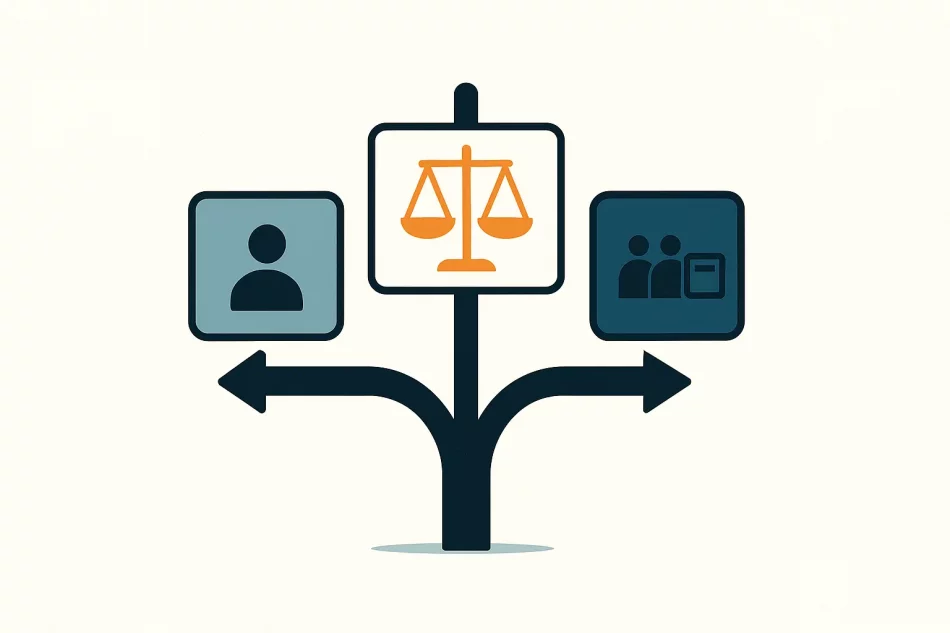I’ll start with a blunt claim: “None” isn’t always singular—and treating it that way makes your sentences clunk. If that jars you, good. It should. Because this tiny choice changes tone, clarity, and how smart your writing sounds.
You’ve hit this before: 9:03 a.m., status email, you type “None of the reports is updated” and it feels wrong. Your cursor hovers. Here’s the fix—and the mindset to stop hesitating.
The fast rule I actually use
- Talking about people only? Use nobody or no one. They’re interchangeable, always singular.
- Talking about people or things—especially with an of the phrase? Use none. It flexes: singular when it means “not one,” plural when it means “not any.”
Pro tip: Write for meaning, not myths: “none” flexes to fit your sentence.
The questions that expose the blind spot
- Am I referring only to people?
If yes, pick nobody/no one: No one wants cleanup duty. (Singular verb, clean tone.) - Could I replace “none” with “not one” or “not any”? Which sounds right?
- If “not one” fits: singular—None of the guests has a ticket.
- If “not any” fits: plural—None of the files are corrupted.
- What tone do I want—formal or casual?
No one reads a touch more formal than nobody. Use that if your doc wears a tie.
Tiny details that stop arguments
- “No one” is two words. “Noone” is wrong. “No-one” (hyphen) shows up in British English; avoid it if your audience is global.
- Nobody/No one always take singular verbs and pronouns: Nobody was there; no one has replied.
- None takes the verb that matches your meaning, not a superstition.
Pro tip: If “of the” follows, “none” does the heavy lifting; if it doesn’t, reach for “nobody” or “no one.”
Concrete scenes (so you hear the rhythm)
- People, singular tone: No one is ever too old to learn.
- People, informal: Nobody wants to stack chairs.
- Things, “not any”: None of the 12 laptops are charging.
- People as a count, “not one”: None of the interviewers has arrived.
Notice the ear-check: laptops → are (plural set). interviewers → has can sound stiff but is precise if you mean zero out of a group, individually considered. If you mean the group collectively? Plural works: None of the interviewers are here yet.
A decision frame you can use mid-sentence
- Step 1: Person-only? → nobody/no one.
- Step 2: If none, swap in “not one” and “not any.” Keep the one that reads naturally; match the verb to it.
- Step 3: Check tone. If your sentence is wearing sneakers, nobody. If it’s in a blazer, no one.
The predictable objection (and why it’s wrong)
“My teacher said ‘none’ is always singular.”
Teachers simplify to keep you moving; language isn’t a traffic cone. In real usage, none has always behaved by sense. When it means not one, singular fits. When it means not any, plural fits. Editors accept this because readers understand it instantly. Precision beats folklore.
Where this breaks (so you don’t overthink it)
If none refers to a mass/uncountable whole—None of the water—use singular: None of the water is cold. There is no “set” to be plural. Also, don’t use nobody/no one for things—Nobody of the boxes is nonsense.
Quick checklist to paste by your keyboard
- People only → nobody / no one (singular).
- “Of the …” phrase about a set → none.
- Swap test: not one → singular; not any → plural.
- Tie vs. T-shirt? No one vs. nobody.
- Never noone.
Mini-FAQ for searchers (and your future self)
Is “none” singular or plural? Both—match the verb to your meaning: “not one” (singular) vs. “not any” (plural).
“Noone” or “no one”? Always no one (two words).
Is “no-one” acceptable? In British English, yes; otherwise prefer no one.
Can “none” refer to people? Yes—None of the guests are/were early.
You don’t need a grammar tattoo to get this right. Ask the two swaps, pick the tone, move on. Clarity first; myths last. And the next time your cursor hovers at 9:03 a.m., it won’t.

